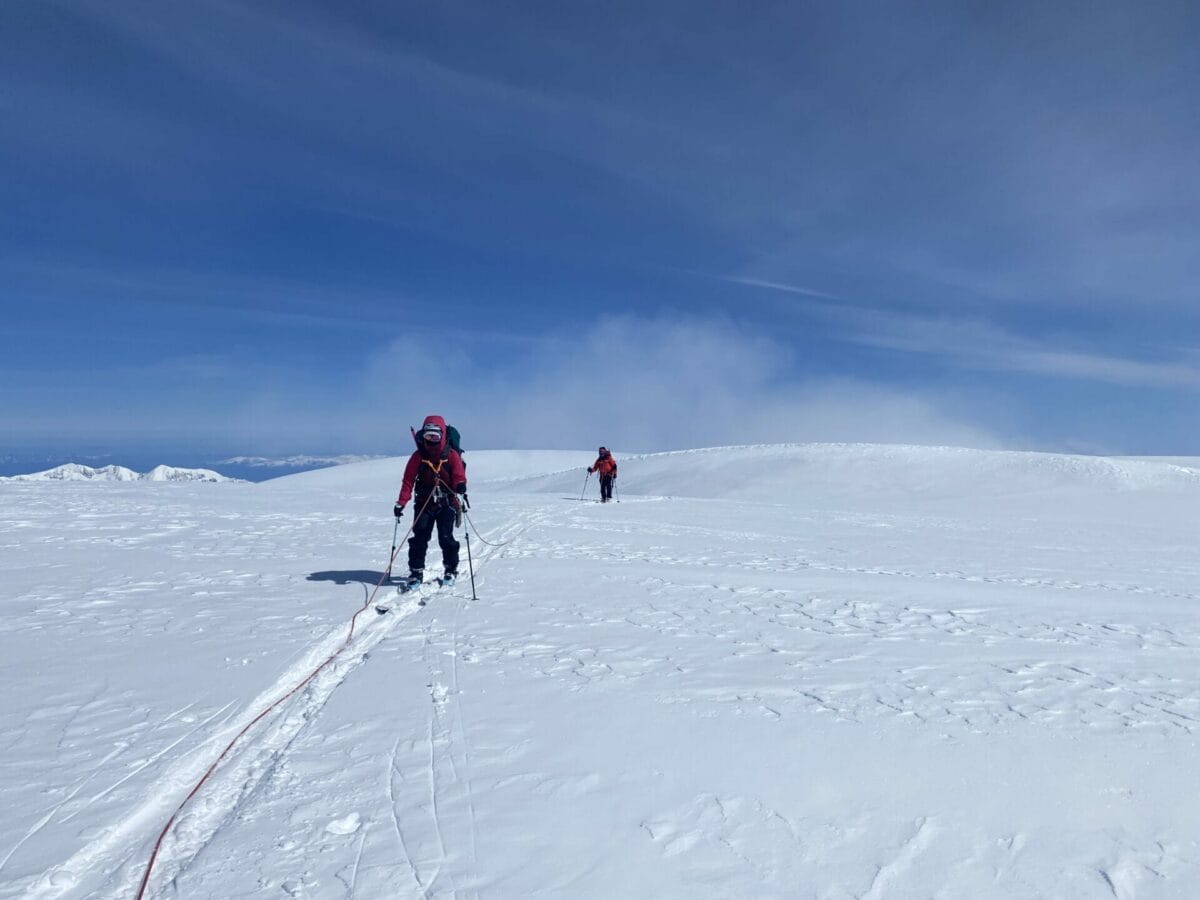
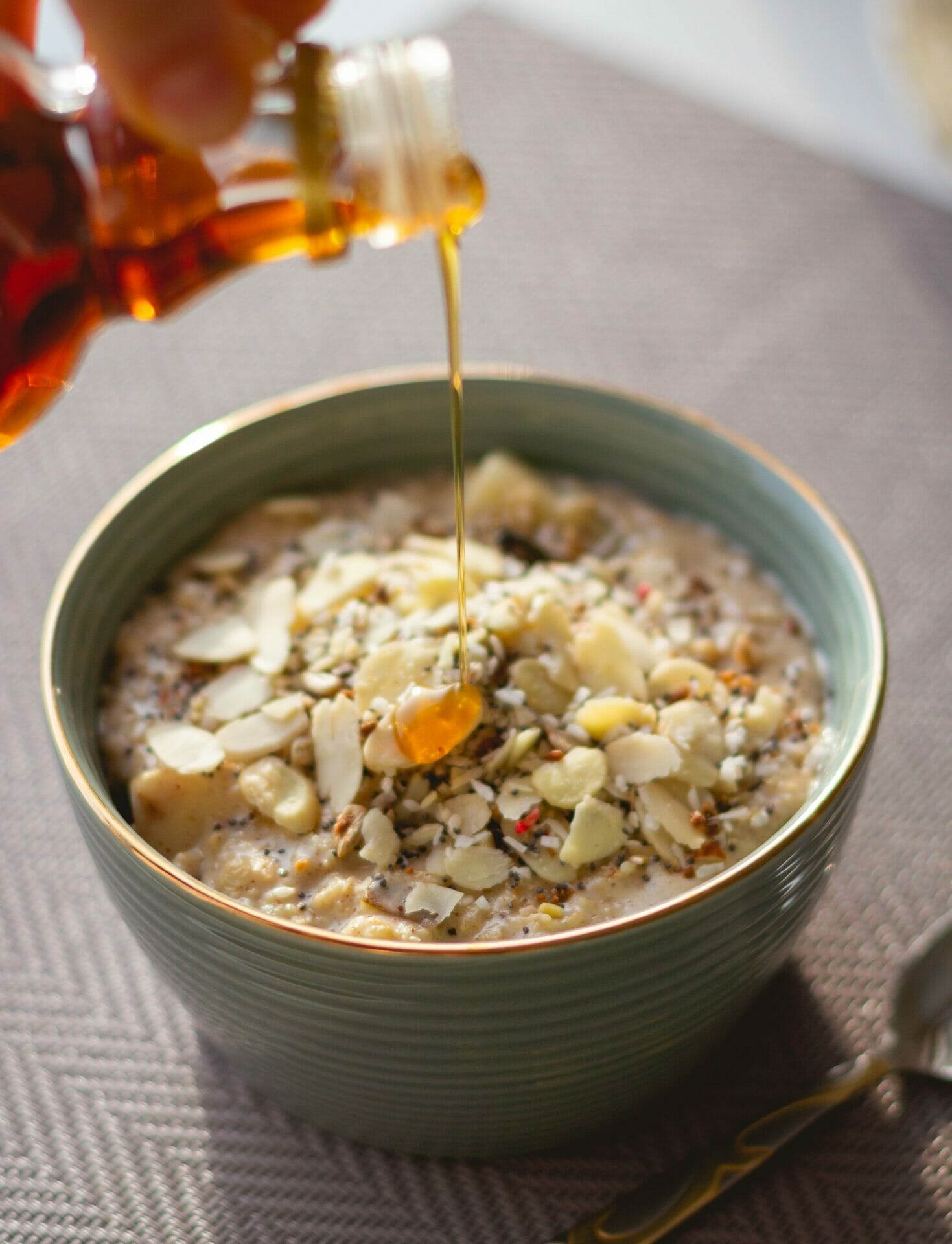
You have an upcoming trail running race and are preparing for the big day!
You’ve determined what you’ll wear, set aside the sports nutrition products and hydration mix you intend to consume during the race, and reviewed a race course map. However, you may have yet to think about one big piece of the puzzle – your pre-race nutrition strategy!
Your pre-race nutrition strategy (or lack thereof) can make the difference between finishing your race with flying colors or barely dragging yourself across the finish line (or DNFing). The right pre-race nutrition strategy will help you feel strong and confident and perform your best during your trail race!
This blog is all about pre-race nutrition and hydration. If you’re looking for foundational nutrition guidance for trail runners, read my blog, Trail Running Nutrition: How to Fuel Your Body to Feel and Perform Your Best. Then, you can return to this blog to learn about pre-race nutrition. Stay tuned for a future blog about fueling and hydrating during trail running races!
In this article, we’ll discuss pre-race nutrition essentials so you can learn how to fuel your body and perform your best in your next trail race.
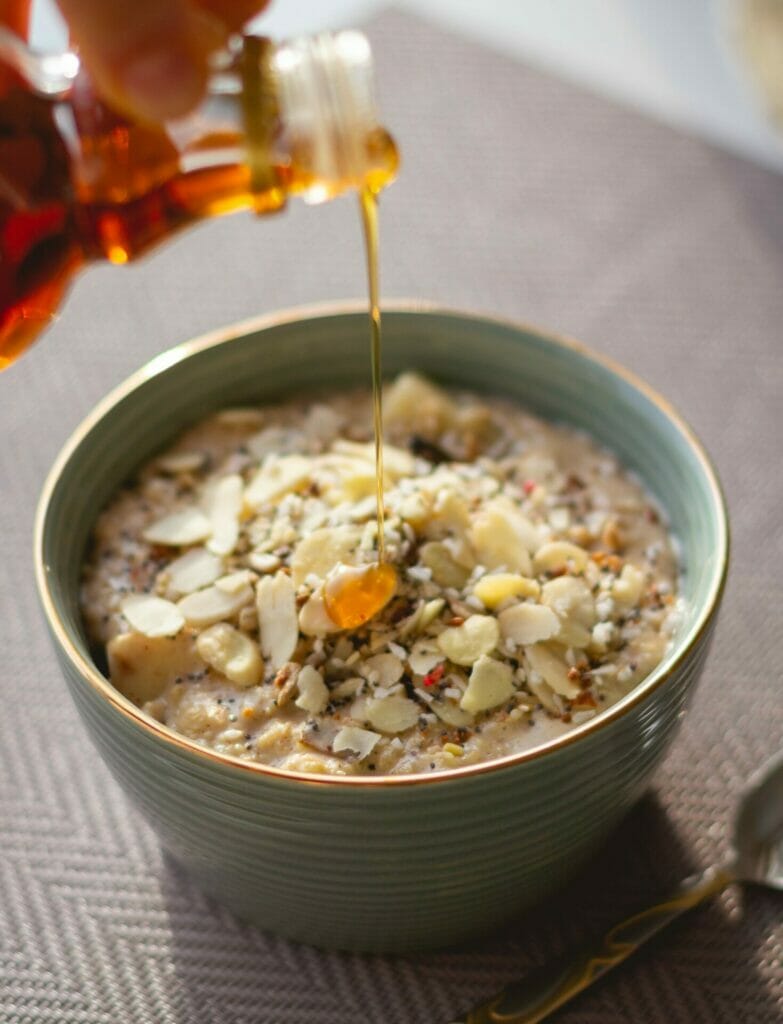
First, I want to distinguish some differences between nutrition during training and race day nutrition.
Fueling for trail running training should primarily be based on supporting optimal training adaptations and whole-body health. Race-day fueling should be designed to support maximal performance.
The types and amounts of specific foods, especially carb and protein quantities and the types of carbs you consume, will differ when you are training versus gearing up for a race.
You can learn more about how to build a solid nutrition foundation for trail running in my blog “Trail Running Nutrition: How to Fuel Your Body to Feel and Perform Your Best.” Then, you can come right back to this blog!
Let’s discuss how to dial in your pre-race nutrition and hydration!
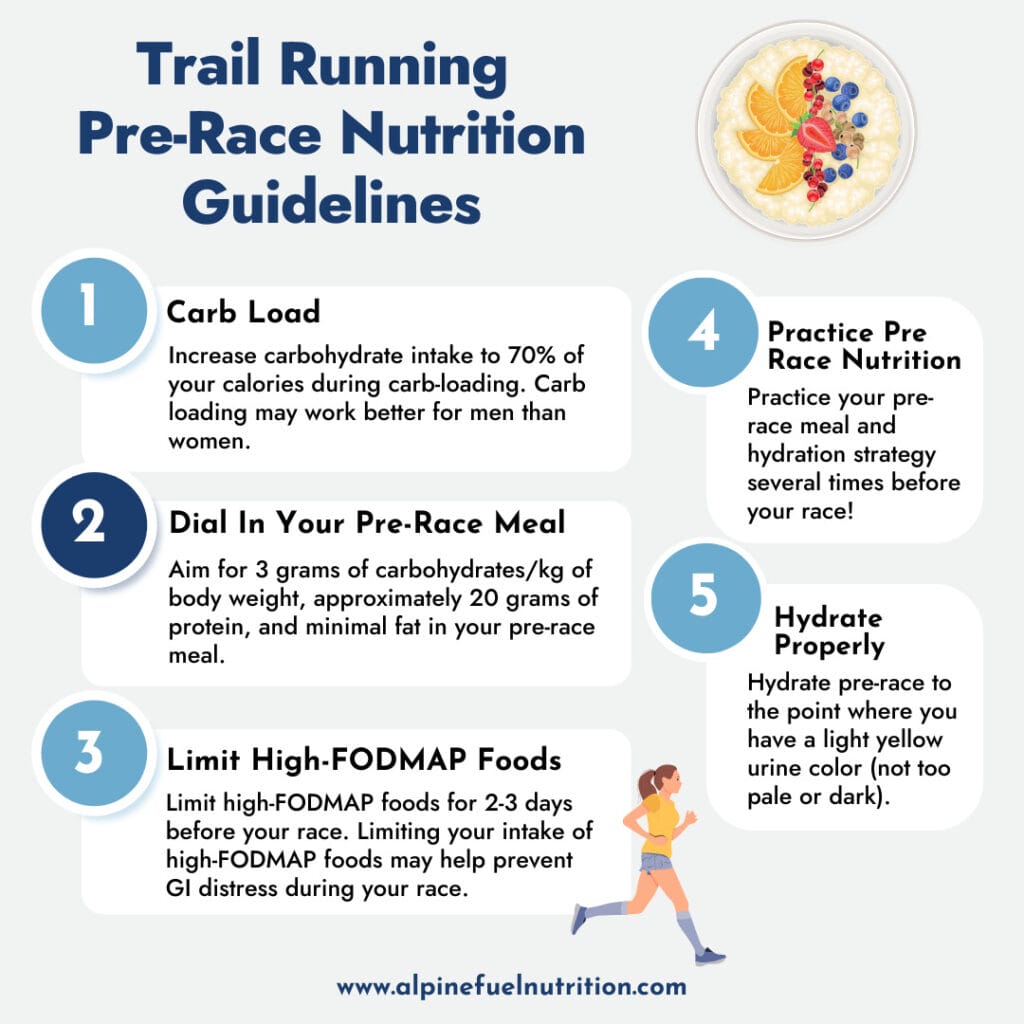
The concept of “carb loading” (aka “carbo-loading” or “glycogen loading”) involves significantly increasing your carbohydrate intake in the day (or days) leading up to your race to saturate your liver and muscles with glycogen, the stored form of carbohydrate.
Your body will then draw upon the glycogen stores to fuel your body during your race. Increasing stored glycogen can prolong your endurance while running and amplify your performance by enhancing the availability of glucose, the fuel your body utilizes to perform high-intensity physical activity.
I often emphasize the importance of whole-food carbohydrates for fueling trail runners. While my recommendation for whole-food carbs still holds true, you’ll want to be thoughtful about the types of whole-food carbs you eat before a trail running race.
The often dramatic elevation changes and technical aspects of trail running races are extremely hard on the body; many trail runners find that their gastrointestinal (GI) systems “rebel” during races, especially if they ate improperly before the race. One way to reduce the risk of a GI “rebellion” is to limit your fiber intake pre-race; this will affect the types of carbs you choose during carb-loading.
For example, instead of choosing to eat a big bowl of fiber-rich quinoa in your pre-race meal, choose relatively easy-to-digest carbohydrates, such as sourdough bread, white rice, or rolled oats.
Advice about how to carb-load is a mixed bag. One thing is for sure – self-experimentation is
vital. Here are the carb-loading guidelines that I recommend:
Some may disagree with this statement, but I am compelled to make it: Carb loading isn’t suitable for everyone. People who meet the following criteria should probably not carb load. Instead, they should meet with a sports nutritionist to determine how to properly fuel in preparation for their race.
A special note on carb loading for women: Women should increase total calories AND carbohydrate intake during the carb loading phase.
On the morning of a race, consume a meal 3-4 hours before the race (it takes food at least several hours to reach your small intestine, where it is absorbed) that provides easily-digested carbohydrates, moderate protein, and minimal fat.
Aim for 3 grams of carbohydrates/kg of body weight in your pre-race meal. For example, a 120-lb woman should eat 163 grams of carbohydrates.
Pair your pre-race carbohydrates with approximately 20 grams of protein and minimal fat.
Fat intake should be low in your pre-race meal because dietary fat slows gastric emptying, the process by which food leaves the stomach and enters the small intestine. Too much fat and slow gastric emptying could lead to gastrointestinal distress during your race.
You should also avoid high-fiber foods in your pre-race meal (as mentioned above) because this may drive gastrointestinal distress.
Here are some examples of pre-race meals you can try:
30-60 minutes before your race, consume another 0.5-1.0 grams of carbohydrates/kg body weight. For a 120-lb woman, this comes to approximately 27-54 grams of carbohydrates.
Finally, it almost goes without saying, but make sure you allocate time to use the bathroom before your race begins!
Avoid high-FODMAP foods for 2-3 days before your race if you struggle with gut issues. The acronym FODMAP stands for “fermentable oligosaccharides, disaccharides, monosaccharides, and polyols,” a group of short-chain carbohydrates found in various plant foods, including garlic, onion, and wheat.
FODMAPs can be poorly absorbed by people with gut imbalances, triggering symptoms such as gas, bloating, and diarrhea. Limiting your intake of high-FODMAP foods may help prevent gastrointestinal distress during your run.
Here are some examples of high-FODMAP foods:
When done correctly, pre-race hydration can make an enormous difference in how you perform during your race. Being adequately hydrated before your race ensures that you can regulate your body temperature, supports your brain function, and reduces the risk of cramping during exercise.
Your pre-race hydration strategy will be affected by:
In other words, self-experimentation is key! A good rule of thumb is to hydrate to the point where you have a light yellow urine color (not too pale or dark).
Plain water should suffice before the race; you’ll want to use a sports drink mix in your water during the race.
Many trail races are in remote locations that necessitate camping at a campground the night before the race. I’ve done my fair share of camping before trail races!
If you’re camping the night before your trail running race, then you must plan your nutrition accordingly. You’ll need to bring pre-race foods and meals that are portable and conducive to camping. Here are a few ideas:
Finally, make sure to practice your race-day nutrition ahead of time. Practice your pre-race meal and hydration strategy several times before your race to ensure it supports your energy and performance and agrees with your gut.
Pre-race nutrition is a critical aspect of preparing for your trail running race. By carefully considering what and when you eat pre-race, you can optimize your energy levels, enhance your endurance, and reduce the risk of unpleasant digestive issues during your race.
Remember to personalize your nutrition plan to meet your unique needs and preferences. Experiment with different foods and timing strategies during training to find what works best for you. And always make sure to stay hydrated, as proper hydration is just as crucial as solid nutrition.
Trail running is unpredictable! Your pre-race nutrition plan can be the steady anchor that keeps you going. So, be mindful of what you eat, stay adaptable, and set yourself up for success on your next trail running adventure!
If you need help personalizing your nutrition, I’d love to help you! I’m currently taking on new clients in my nutrition practice. You can learn more about how I help mountain athletes, including trail runners, here!
Would you like a super convenient, easy-to-read, PDF version of this comprehensive blog? Grab your PDF copy of 5 Simple Pre Race Nutrition and Hydration Strategies for Trail Runners!
The content provided on this nutrition blog is intended for informational and educational purposes only. It is not a substitute for professional medical advice, diagnosis, or treatment. Always seek the advice of your physician or other qualified health provider with any questions you may have regarding a medical condition. Never disregard professional medical advice or delay seeking it because of something you have read on this blog.
The information and recommendations presented here are based on general nutrition principles and may not be suitable for everyone. Individual dietary needs and health concerns vary, and what works for one person may not be appropriate for another.
I make every effort to provide accurate and up-to-date information, but the field of nutrition is constantly evolving, and new research may impact dietary recommendations. Therefore, I cannot guarantee the accuracy or completeness of the information presented on this blog.
If you have specific dietary or health concerns, please consult a qualified nutritionist or another healthcare professional for personalized guidance.
I empower others through nutrition to conquer their mountain adventures, drawing from my own experiences.
With a background in Biomedical Science and an M.S. in Human Nutrition, I’m a Certified Nutrition Specialist and Licensed Dietitian Nutritionist. My journey in functional medicine has equipped me to work alongside athletes and tackle complex health cases. As a passionate trail runner, backcountry skier, and backpacker, I strive to support others on their paths to peak performance and well-being.


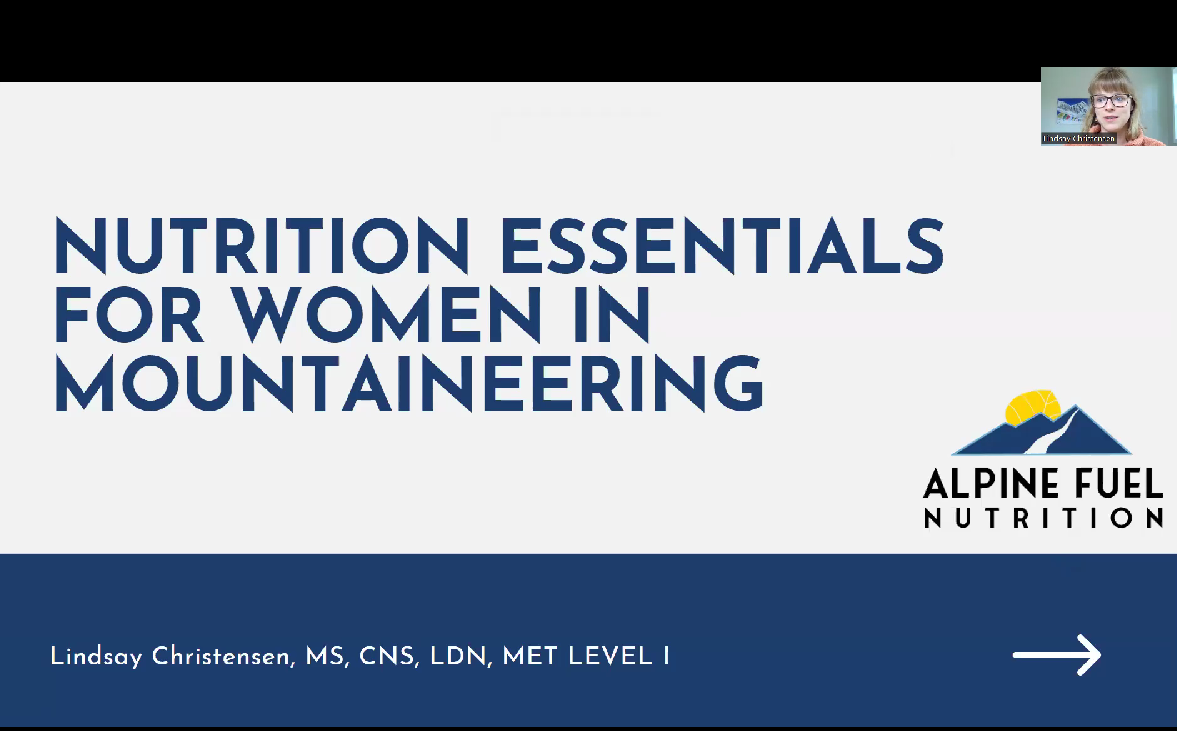

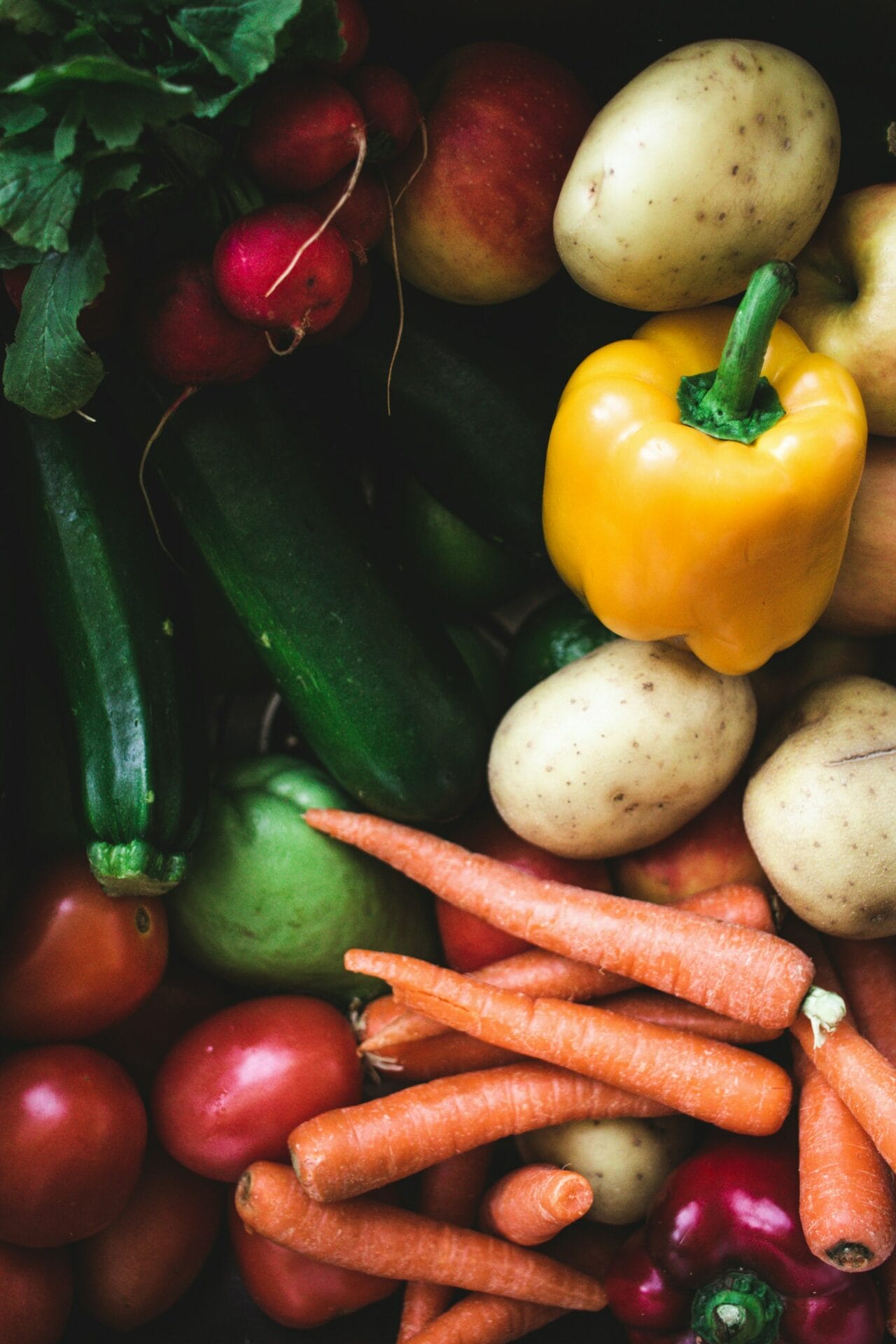
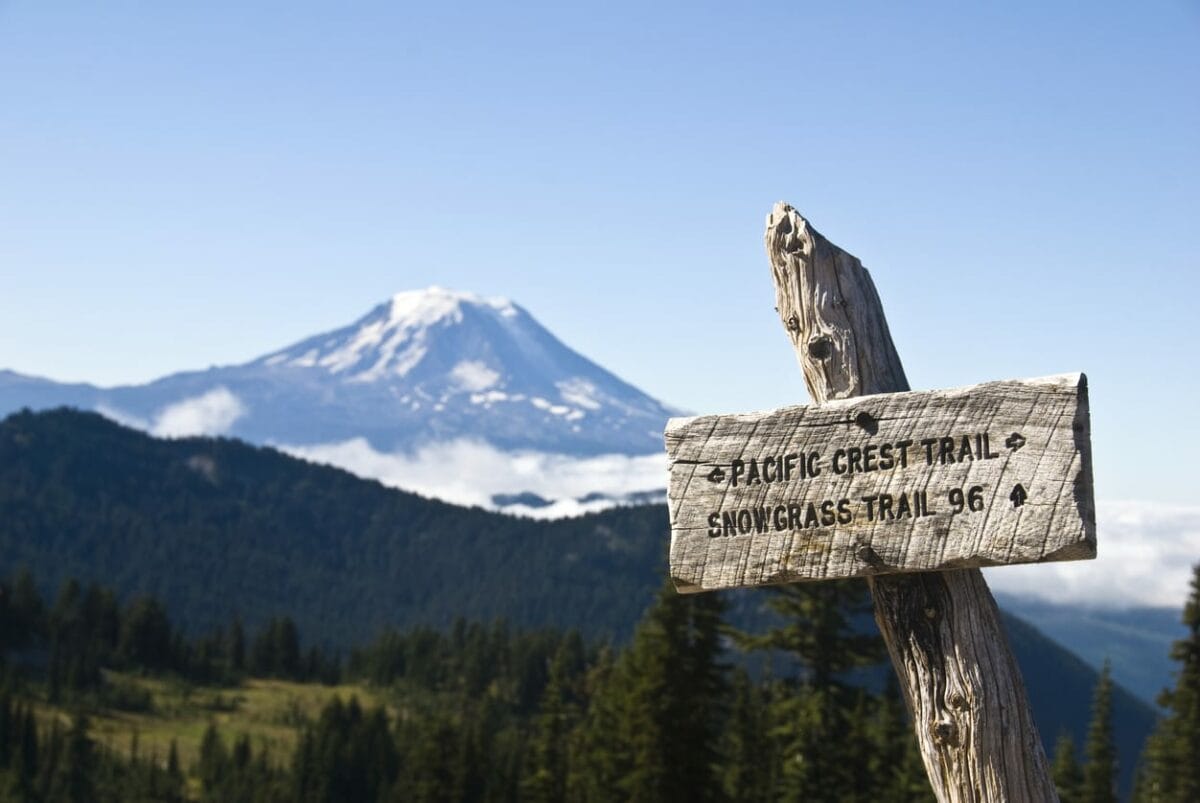
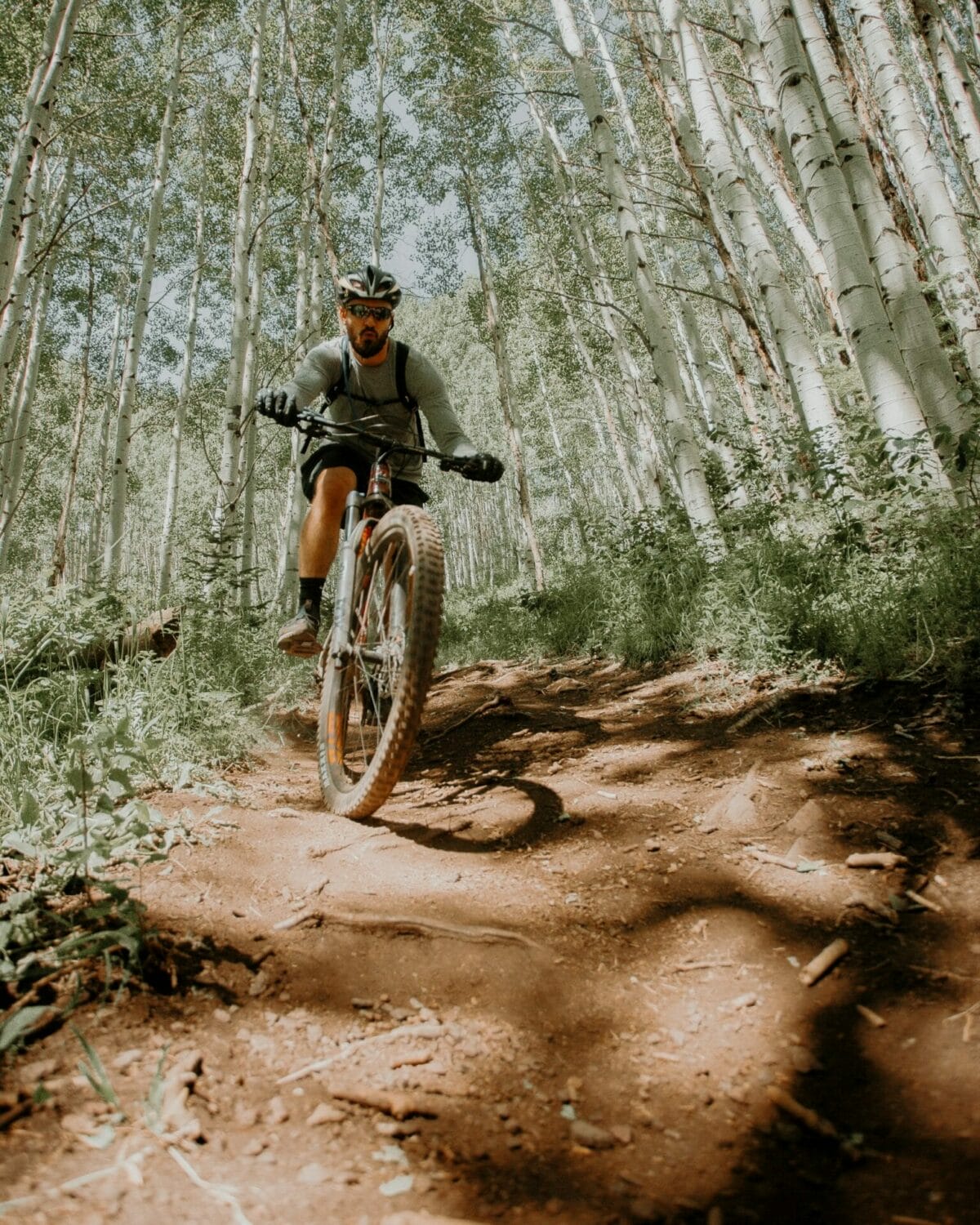

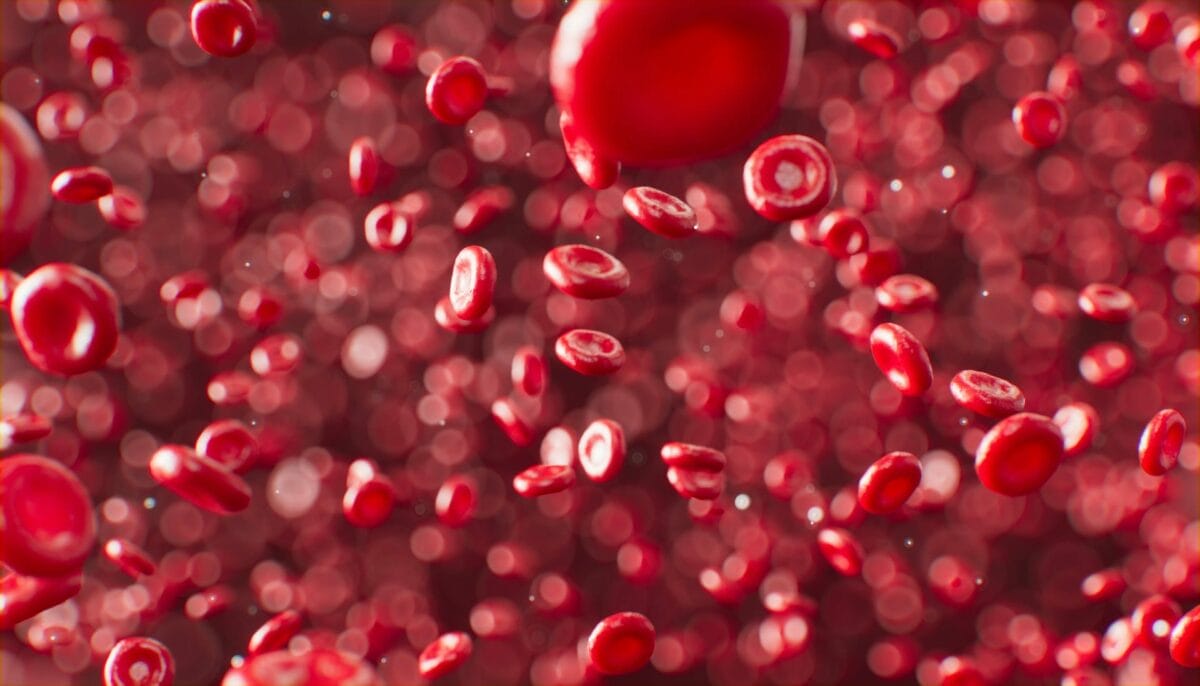
Sign up for updates that come right to your inbox.